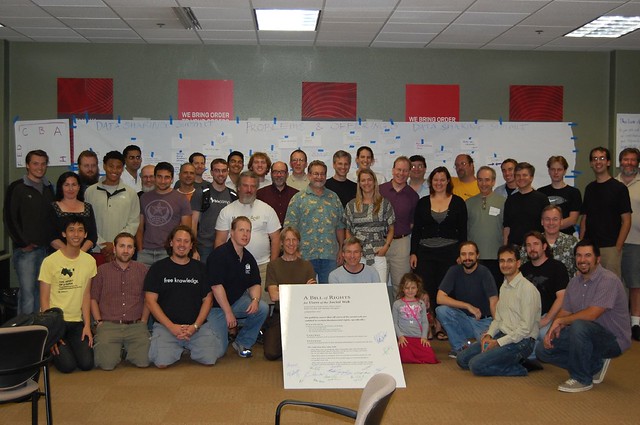In some ways, the web industry seems to have lost its way. From empowering users and smashing incumbent gatekeepers, the emphasis is now on how to raise the next round of funding and convert active users into their maximum possible value..
My piece about Facebook, contextual identity and radical transparency continues to get a lot of attention, and the conversation continues. Dave Winer urged his readers to log out of Facebook, and Nik Cubrilovic countered that logging out doesn’t help. In short, when you log out, Facebook continues to remember who you are, and your account details are still sent whenever you access a Facebook resource (like a page or facebook.com or a Like button anywhere). He goes on to say that:
Privacy today feels like what security did 10-15 years ago – there is an awareness of the issues steadily building and blog posts from prominent technologists is helping to steamroll public consciousness. The risks around privacy today are just as serious as security leaks were then – except that there is an order of magnitude more users online and a lot more private data being shared on the web.
It’s clear that privacy is becoming a business factor as well as something that some of us care about from an ethical standpoint, and that’s in large part due to Facebook bringing it to the public’s attention. I’m reminded of the Bill of Rights for Users of the Social Web, from 2007, which many of us signed as part of Marc Canter’s Data Sharing Summit. It was intended to address many of these issues before they became wider problems.
The meat of the Bill of Rights is:
We publicly assert that all users of the social web are entitled to certain fundamental rights, specifically:
Ownership of their own personal information, including: their own profile data; the list of people they are connected to; the activity stream of content they create;
Control of whether and how such personal information is shared with others; and
Freedom to grant persistent access to their personal information to trusted external sites.
At the meeting, a large and influential (at the time) web corporation suggested that the word “ownership” was a step too far, and that it should be enough for users to simply have control. Since then, I think it’s become acceptable to suggest that users own their data (as in the course of using a web service, a reasonable person would assume that he or she already does); instead, web services are granted an irrevocable license to use it.
Given this, and given the conversations we’ve been having as a community, perhaps the time is right to revive aspects of this document, and bring it up to date for 2011?
Photo: the Data Sharing Summit group, September 8, 2007. A prize for the first person to identify 90% of the people in the picture.

Leave a Reply